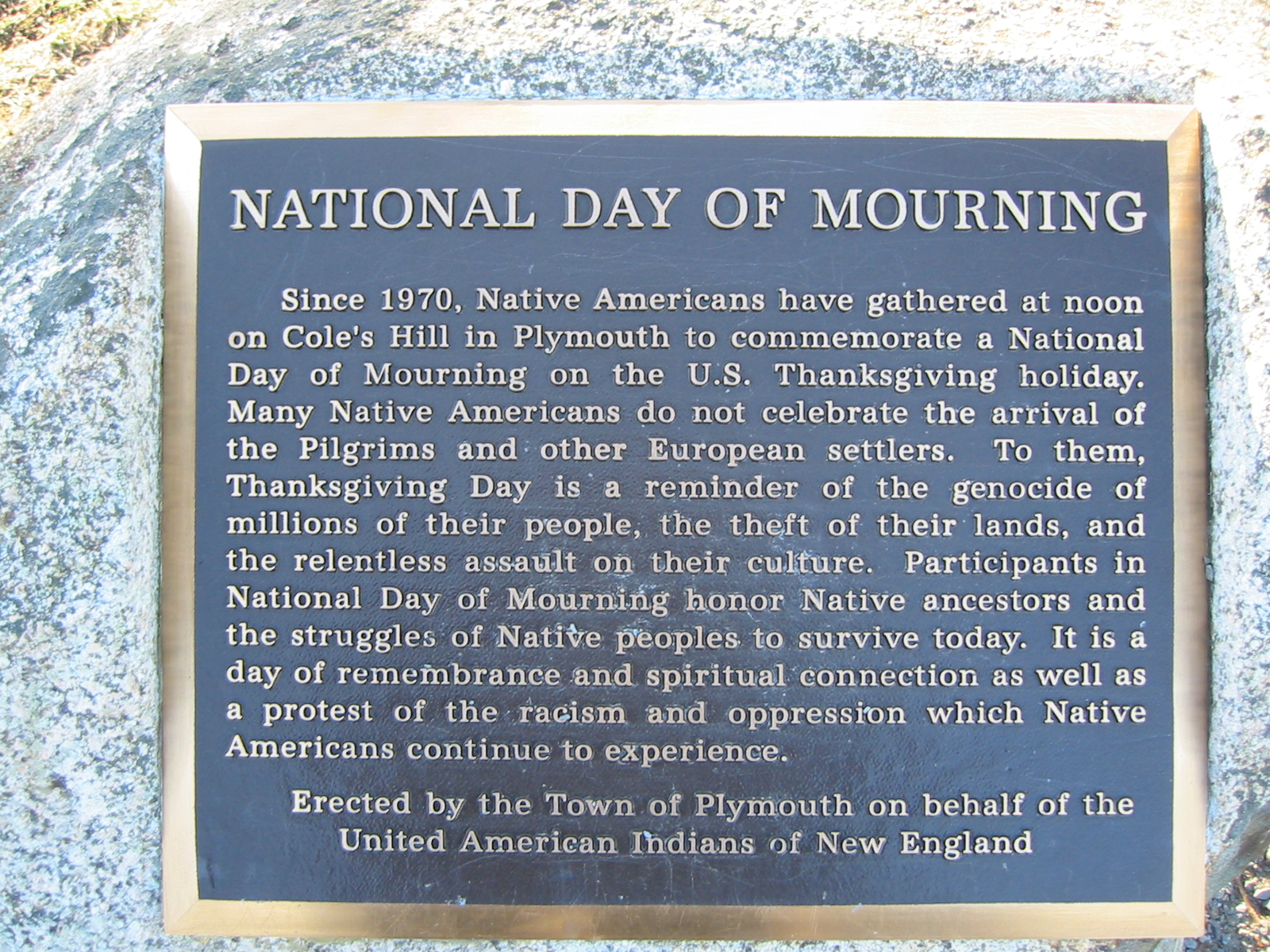Indianz.Com > News > The Conversation: Thanksgiving stories ignore history of colonization on Native lands

Thanksgiving stories gloss over the history of US settlement on Native lands
Wednesday, November 29, 2023
The Conversation
Too often, K-12 social studies classes in the U.S. teach a mostly glossed-over story of U.S. settlement. Textbooks tell the stories of adventurous European explorers founding colonies in the “New World,” and stories of the “first Thanksgiving” frequently portray happy colonists and Native Americans feasting together. Accounts of the colonies’ battle for independence frame it as a righteous victory. Native American removal might be mentioned as a sad footnote, but the triumph of the pioneer spirit takes center stage.
As a scholar of Native American and Indigenous rhetorics, I argue that this superficial story hides the realities of what many historians and activists call “settler colonialism.” Historian Lorenzo Veracini asserts that colonial activity isn’t just about a nation sending out explorers and bringing back resources, or what scholars refer to as “classical colonialism.” It’s also about what happens when a new people moves in and attempts to establish itself as the “superior” community whose culture, language and rights to resources and land supersede those of the Indigenous people who already live there.
When U.S. history, culture and politics are understood through the lens of settler colonialism, it’s easier to understand how, as historian Patrick Wolfe wrote, “settler colonizers come to stay: invasion is a structure, not an event.”
US policies and why they matter
While settler colonial policies can include genocide, they take many forms.
Deceptive and broken treaties forced Native American nations to give up vast portions of their homelands. For example, in eastern Tennessee, the Treaty of Holston, signed in 1791, was made in theory to help establish clear boundaries between Cherokee and settler communities.
The U.S. government would receive land, and the Cherokee would receive annual payments, goods and the promise of the government’s protection in return. Instead, settlers moved onto Cherokee land and the U.S. government did not intervene. By 1798, the First Treaty of Tellico forced the Cherokee to give up the land the settlers had illegally taken, plus some. Year by year, the Cherokee and other tribes were pushed out.
Reducing harm
It isn’t possible to simply undo all of these policies and their impact. Yet scholars Eve Tuck and K. Wayne Yang acknowledge that challenging those policies and reducing their influence, known as settler harm reduction, is a first step toward change. But for change to happen, those who benefit from the settler colonial system – whether original settlers or anyone today who gains advantage from these policies – need to work with Native American nations and communities toward finding active ways to do better.
The starting point is identifying the stories that still circulate in the U.S. about Native Americans and finding ways to change settler colonial assumptions that still reinforce Native American erasure. With Thanksgiving right around the corner, I believe teaching the Thanksgiving story alongside the Wampanoag peoples of today is an easy place to start. The past cannot be undone, but it doesn’t have to dictate the future.Lisa Michelle King is an Associate Professor of English at University of Tennessee. King’s research and teaching interests are interdisciplinary, and include cultural rhetorics with an emphasis in contemporary Native American and Indigenous rhetorics, visual rhetorics, and material rhetorics.
This article is republished from The Conversation under a Creative Commons license. Read the original article.
Search
Filed Under
Tags
More Headlines
Press Release: National Museum of the American Indian hosts Native art market
AUDIO: Sea Lion Predation in the Pacific Northwest
Native America Calling: Tribal colleges see an uncertain federal funding road ahead
Native America Calling: Short films taking on big stories
Native America Calling: Advocates push back against new obstacles to Missing and Murdered Indigenous Relatives momentum
Native America Calling: For all its promise, AI is a potential threat to culture
NAFOA: 5 Things You Need to Know this Week (November 24, 2025)
Chuck Hoskin: Cherokee Nation invests in rural transportation
Native America Calling: Native candidates make strides in local elections
National Congress of American Indians returns incumbents and welcomes newcomers to leadership
National Congress of American Indians chooses leadership at big convention
‘Not voting is still a vote’: Native turnout drops amid changes in political winds
Native America Calling: Indigenous voices speak up, but have little clout at COP30
‘It’s bull****’: Indian Country confronts challenges at largest inter-tribal conference
Native America Calling: The constant burden on tribal hunters to justify their treaty rights
More Headlines
AUDIO: Sea Lion Predation in the Pacific Northwest
Native America Calling: Tribal colleges see an uncertain federal funding road ahead
Native America Calling: Short films taking on big stories
Native America Calling: Advocates push back against new obstacles to Missing and Murdered Indigenous Relatives momentum
Native America Calling: For all its promise, AI is a potential threat to culture
NAFOA: 5 Things You Need to Know this Week (November 24, 2025)
Chuck Hoskin: Cherokee Nation invests in rural transportation
Native America Calling: Native candidates make strides in local elections
National Congress of American Indians returns incumbents and welcomes newcomers to leadership
National Congress of American Indians chooses leadership at big convention
‘Not voting is still a vote’: Native turnout drops amid changes in political winds
Native America Calling: Indigenous voices speak up, but have little clout at COP30
‘It’s bull****’: Indian Country confronts challenges at largest inter-tribal conference
Native America Calling: The constant burden on tribal hunters to justify their treaty rights
More Headlines